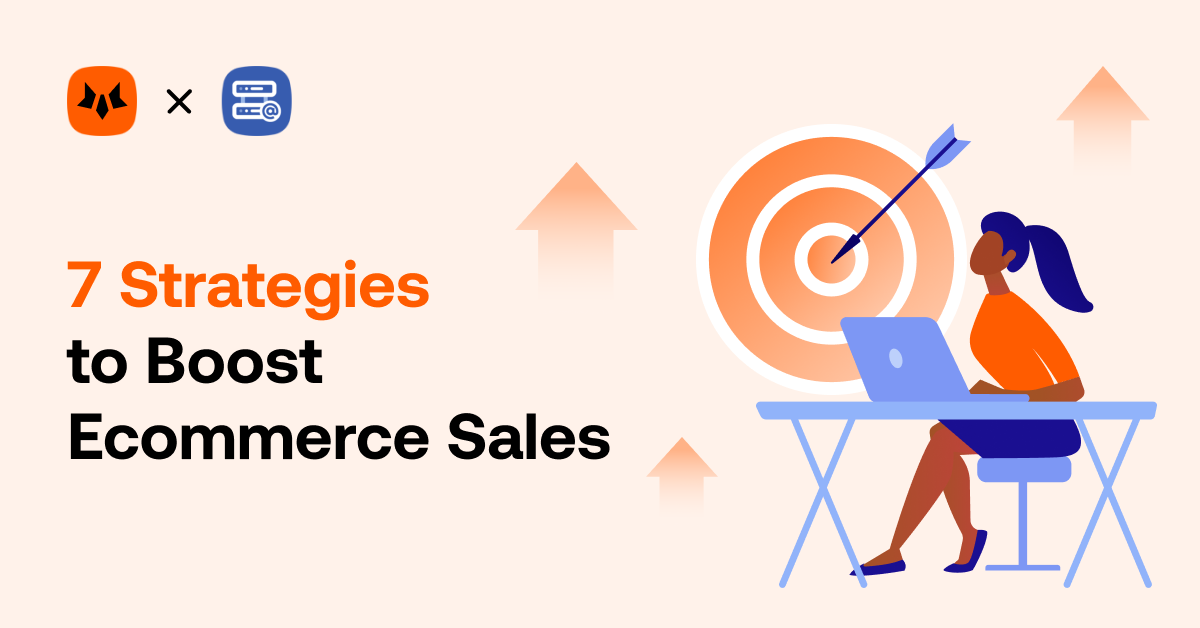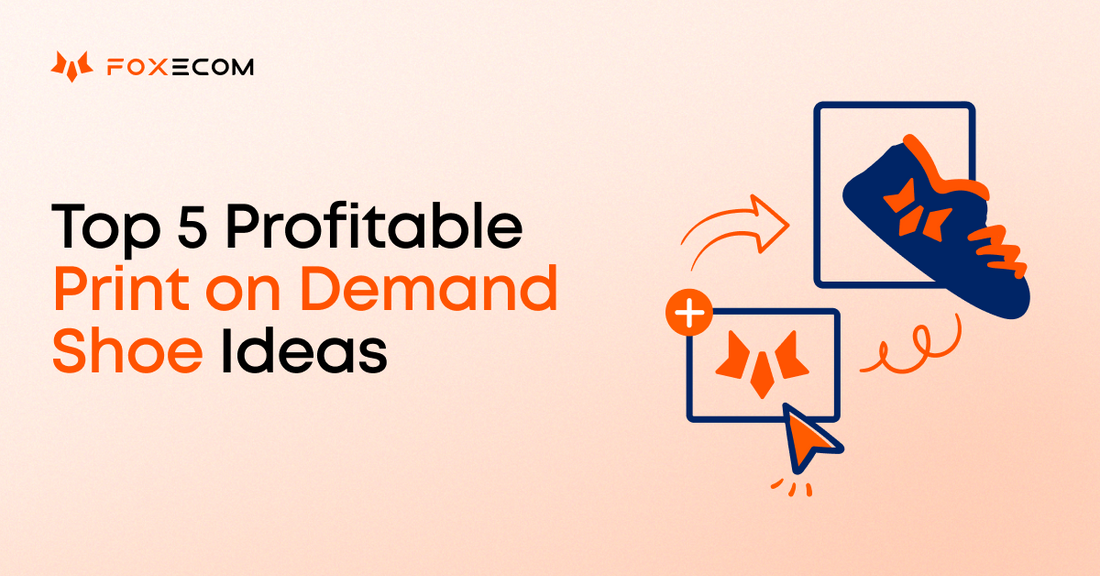According to DOOFINDER, there are more than 26.5 million eCommerce websites worldwide. The competition is indeed fierce!
With the rising customer acquisition cost and the imminent end of third-party cookies, traditional methods of attracting new customers are becoming less effective.
The good news is that with the right data insights and a robust eCommerce growth strategy, you can create a customer experience that not only meets but exceeds expectations, thus earning you a sustainable ROI.
Today, we will share the 7 most effective and powerful strategies that will help you boost eCommerce sales in 2024 and beyond.
Ready? Let's jump right in!
1. Run Drip Email Marketing Campaigns
Drip Email Marketing Campaigns are automated email sequences that send targeted emails to subscribers over time, with the goal of nurturing leads and guiding them through their customer journey.

Image source: zapier
For instance, a well-crafted welcome email series can be a game-changer in establishing a strong rapport with new subscribers or customers. This series typically comprises multiple emails, each serving a specific purpose to onboard, educate, and incentivize recipients.
If you want to collect leads effectively:
- Consider setting up a 3 to 5-email welcome series.
- Start by expressing gratitude for subscribing, then provide valuable tips or content relevant to your audience's interests or pain points.
- Entice them with premium services or exclusive offers, linking to a dedicated landing page to capture their information or encourage further engagement.
Similarly, for product-focused email campaigns:
- 4 to 7-email onboarding series can be instrumental.
- Begin by thanking customers for their purchase and providing links to helpful resources.
- Subsequent emails can highlight specific product use cases and share case studies showcasing successful outcomes.
- Lastly, don't forget to invite feedback or reviews to increase user engagement.
According to Pinpoint, drip campaigns generally have an 80% higher open rate and a threefold higher click-through rate than single-send emails.
Ultimately, the main goal of drip campaigns is to build lasting relationships with customers, enhance their understanding of your products or services, and drive conversions through targeted, personalized communication.
💡 Expert Tips: If you own a WordPress website and are experiencing issues such as "WordPress not sending emails", we recommend using a WordPress SMTP plugin like Post SMTP to improve email deliverability.
2. Integrate Multiple Payment Options
Many online retailers make the mistake of limiting payment methods, leaving out a significant percentage of potential buyers.
According to TD Bank's Annual Consumer Spending Index, a staggering 23% of millennials don't possess a credit card. By solely offering credit card payments, you risk alienating this demographic and missing out on valuable sales opportunities.
So what is the solution?
Offer multiple payment options to reach a wider audience. The process is simple, and it can pay off big time. Integrate popular e-wallets like PayPal and mobile wallets (e.g., Apple Pay, Google Pay, etc.), incorporate debit card payments into your checkout process, and consider offering the convenience of bank transfers.

Image source: Adobe Stock
Simply put, multi-payment options not only increase accessibility for customers but also demonstrate flexibility and responsiveness to their preferences.
🔥 Related article: Best Buy Now Pay Later Practices For High Conversions
3. Re-Target Your Loyal Customers
Re-targeting your loyal customers is a powerful strategy to maximize your eCommerce sales without incurring hefty acquisition costs.
Studies indicate that retaining existing customers can be up to 25 times more cost-effective than acquiring new ones, making it a lucrative investment for your business.
Since returning customers are already familiar with your brand and products, they are 80% more likely to make a repeat purchase.
You can re-target the existing customers by:
- Sending targeted emails (i.e., onboarding email series, exclusive promotions, etc.)
- Targeted advertisements on search engines like Google, Bing, etc.
- Social media ads featuring complementary products or exclusive offers that match their preferences and purchase history.

Image source: lexer
For instance, if a customer previously purchased a pair of sweatpants from your store, you could re-target them with an email promoting a matching jacket from the same brand.
In a nutshell?
A well-timed email or advertisement to your existing customer base has the potential to yield significant sales results fast.
4. Create Scarcity to Encourage Impulse Buying
While the basic economic model of supply and demand suggests that increased supply lowers prices, scarcity works in the opposite direction, thus increasing perceived value.
In 1975, the University of Virginia conducted a study where participants rated a jar with only 2 cookies as more valuable than one with 10 cookies.
Isn't that strange?
Actually, scarcity triggers impulsive buying behavior of a customer through fear of missing out (FOMO), which results in immediate purchase action.

Image source: zalando
To leverage scarcity and boost your eCommerce sales, consider implementing strategies such as displaying stock levels, offering limited edition items, or providing time-limited price discounts.
Additionally, showcasing the number of visitors viewing a product page or recent product sales can create a sense of urgency and drive impulse purchases.
💡 Expert Tip: Explore more in Top 8 Sales-Boosting, Upselling, and Cross-selling Techniques.
5. Apply Price Anchoring Across All Products
Price anchoring capitalizes on the psychological phenomenon where consumers perceive discounted prices more favorably when compared to higher original prices, it helps boost the willingness to pay estimated between 44% and 51%.
Consider this scenario: Offer A priced at $500 (original price) versus Offer B priced at $500 (discounted from $1000 or 50% off).

Image source: creativeo
Most individuals would find Offer B more appealing, given the reference point of the original $1000 price tag.
To leverage price anchoring effectively for your eCommerce sales, follow these 2 simple steps:
- Step 1: Highlight the original price. Whenever a product goes on sale, prominently display its price before the discount. Whether it's the recommended retail price (RRP) or the previous selling price, this serves as a powerful anchor for consumers.
- Step 2: Present higher prices first. Another effective tactic is to offer different product variations, always showcasing the highest-priced option first. This prompts customers to view the lower-priced options as better deals in comparison.
By implementing these price anchoring techniques across all your products, you can shape consumer perceptions, enhance the perceived value of your offerings, and ultimately drive higher sales in your eCommerce store.
📕 You might also like: 15 Best Shopify Discount Apps (2024 Sellers' Choice).
6. Optimize Your Average Order Value
To increase your sales without spending more on marketing, focus on maximizing the value of each transaction. This means increasing your average order value (AOV), or the average amount customers spend when they purchase from your brand.
The best way to raise your AOV is to offer high-value items first and suggest additional smaller items during checkout. But for many sellers, it involves a strategic mix of personalization, bundling, and pricing tactics.

Image source: Magesolution
To maximize your AOV this year, you can practice the following tips:
- Take advantage of personalization tools to recommend complementary products or items recently viewed by customers when they visit your website or click the call-to-action button.
- Expand your payment options to include Buy Now Pay Later and mobile wallets, making it easier for more customers to complete their purchases swiftly.
- Consider setting a minimum order amount for free or discounted shipping or offer exclusive coupons and promotions to incentivize customers to spend more.
- Create product bundles and add-ons, and adjust your inventory management to ensure you have sufficient stock levels for each product. Read how now.
- Encourage repeat purchases by rewarding customers for their loyalty. Offer points for every dollar spent, which they can redeem for discounts or exclusive perks like free shipping.
- During checkout, suggest related or upgraded products that complement the customer's original purchase. Highlight the benefits of these additional items and offer them at a discounted rate if bundled with the main purchase.
7. Run Google Shopping Ads
If your store has a large number of products, consider listing them on Google Merchant Center and running Google Shopping Ads.
With an average conversion rate of 1.91%, these ads are a smart way to tap into Google searches and direct traffic to your store based on what people are actively looking for. Because they target users based on their search queries, their intent to purchase is often higher than other channels.
Unlike standard AdWords, these ads showcase your actual products directly within the Google Shopping section of search results. They offer customers a visually appealing catalog-like browsing experience, as seen in the example below:

Image source: Google
Each product displayed is essentially an ad, created within the AdWords platform. It showcases your product information exactly as provided by your store, in the preferred shopping format of Google.
When users click on these products, they are directed to your website and the specific product page to make a purchase.
Setting up Google Shopping Ads involves some technical steps to create a product feed that you submit to Google. However, once set up, you can automatically automate submitting your products daily.
💡 Expert Tips: Using eCommerce SEO and PPC to attract more customers.
Wrapping Up
To grow your eCommerce sales without spending a hefty advertising budget, you have to take a strategic approach. The seven strategies we discussed today won't just help you navigate the competition but will help you dominate it.
Here’s a quick rundown of 7 key strategies to 10x your eCommerce sales in 2024.
- Run Drip Email Marketing Campaigns
- Integrate Multiple Payment Options
- Re-Target Your Loyal Customers
- Create Scarcity to Encourage Impulse Buying
- Implement Price Anchoring Across All Products
- Optimize Your AOV (Average Order Value)
- Set up Google Shopping Ads
Remember, as you embark on this journey, stay flexible, adapt to new trends, and consistently refine your approach. With these seven key strategies at your disposal, you're well-equipped to achieve 10x growth and unlock the full potential of your eCommerce business.




